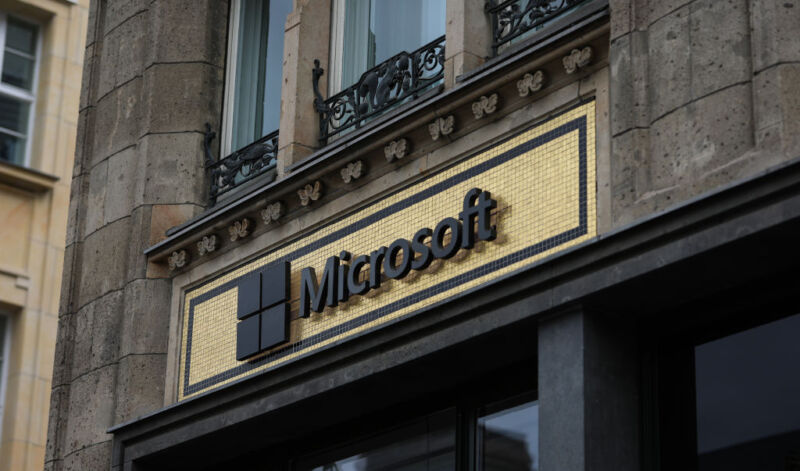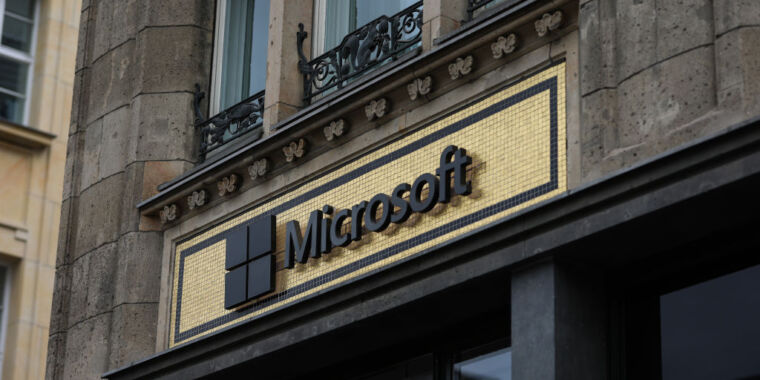[ad_1]

As soon as Lars Ruiter steps out of his car, he is confronted by a Microsoft security guard, who is already seething with anger. Ruiter, a local councillor, has parked in the rain outside a half-finished Microsoft data center that rises out of the flat North Holland farmland. He wants to see the construction site. The guard, who recognizes Ruiter from a previous visit when he brought a TV crew here, says that’s not allowed. Within minutes, the argument has escalated, and the guard has his hand around Ruiter’s throat.
The security guard lets go of Ruiter within a few seconds, and the councillor escapes with a red mark across his neck. Back in his car, Ruiter insists he’s fine. But his hands shake when he tries to change gears. He says the altercation—which he will later report to the police—shows the fog of secrecy that surrounds the Netherlands’ expanding data center business.

“We regret an interaction that took place outside our data center campus, apparently involving one of Microsoft’s subcontractors,” says Craig Cincotta, general manager at Microsoft, adding that the company would cooperate with the authorities.
The heated exchange between Ruiter and Microsoft’s security guard shows how contentious Big Tech’s data centers have become in rural parts of the Netherlands. As the Dutch government sets strict environmental targets to cut emissions, industries are being forced to compete for space on Dutch farmland—pitting big tech against the increasingly political population of Dutch farmers.
There are around 200 data centers in the Netherlands, most of them renting out server space to several different companies. But since 2015, the country has also witnessed the arrival of enormous “hyperscalers,” buildings that generally span at least 10,000 square feet [Editor’s note: The vast majority of hyperscalers are much larger than this] and are set up to service a single (usually American) tech giant. Lured here by the convergence of European Internet cables, temperate climates, and an abundance of green energy, Microsoft and Google have built hyperscalers; Meta has tried and failed.
Against the backdrop of an intensifying Dutch nitrogen crisis, building these hyperscalers is becoming more controversial. Nitrogen, produced by cars, agriculture, and heavy machinery used in construction, can be a dangerous pollutant, damaging ecosystems and endangering people’s health. The Netherlands produces four times more nitrogen than the average across the EU. The Dutch government has pledged to halve emissions by 2030, partly by persuading farmers to reduce their livestock herds or leave the industry altogether. Farmers have responded with protests, blockading roads with tractors and manure and dumping slurry outside the nature minister’s home.
The courts have also halted thousands of building projects—forcing construction jobs like Microsoft’s to apply for permits proving they would not make the nitrogen crisis worse.
However, Microsoft’s newest data center has yet to receive those permits. The local environment agency told WIRED it is still assessing the company’s paperwork. In a system where farmers and house developers’ projects have stalled as they wait for nitrogen permits, there’s a sense that Microsoft has jumped the queue. “They don’t have the right permission to build,” says Ruiter, who represents the municipality of Hollands Kroon. To him, it is a double standard to let Microsoft keep building while other construction work has been put on hold. “When farmers don’t have the permission to build a farm, they will not build the farm. Microsoft doesn’t have the right permission to build a data center, but they already got started building the data center.”
[ad_2]
Source link

